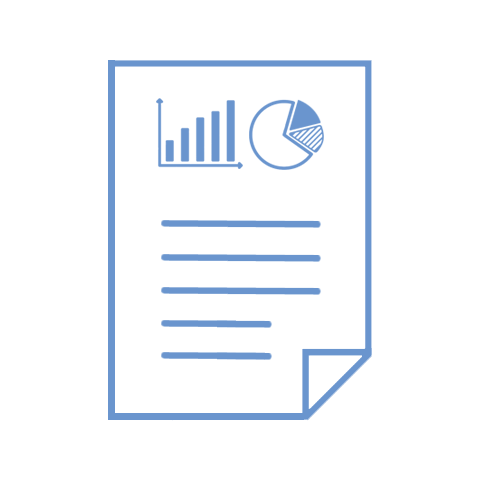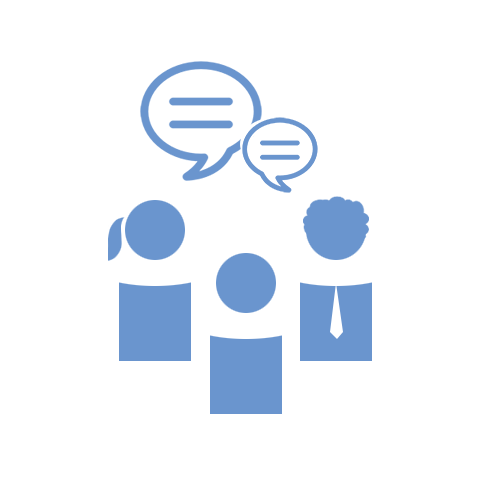
Do you want Facebook to double your next donation?
Or would you prefer to have enough books, articles, and podcasts to get you through the rest of Giving Season?
Good news: You don’t have to choose, because this month, we’ve given you both! We hope you enjoy the update.
The Team
Articles and Community Posts
On the EA Forum, Michael Plant advocates for working on mental health and happiness. And the new version of the Forum offers discussion on giving now vs. later, the measurement of suffering, and articles that led people to join the EA community. Mark your calendars for the full launch of the new Forum tomorrow.
The Alignment Forum has launched! The site aims to be an online hub for AI safety researchers to discuss technical approaches to aligning artificial intelligence and publish sequences explaining core ideas around alignment. If you’re a non-researcher and want to comment, join the wider discussion on LessWrong (where all articles are cross-posted).
Our favorite articles from the launch of Future Perfect, Vox’s new EA-inspired section: Kelsey Piper takes on myths about anti-malarial bednetsand Dylan Matthews discusses his decision to donate a kidney.
GiveWell is publishing more frequent updates to their cost-effectiveness model. They record these updates in their changelog, which is a great place to see some of the world’s foremost charity evaluators at work.
80,000 Hours surveyed the leaders of EA organizations about the skills and experience the community needs most, the value of new hires, and the problems that are most effective to work on. The survey prompted a lively discussion on the EA Forum.
DeepMind, the company behind AlphaGo, kicked off its Safety Research blog with a post that explores three areas of technical AI safety. It features practical examples for readers new to the field and a forest of citations for those who want to dig deeper.
Julia Wise has a new essay on the simple, critical fact that every person we help -- even if we never learn their name -- is an individual who matters.
Timeless Classics
Now that Giving Season is here, it’s a good time to think about the purpose of philanthropy: Why donate to charities in the first place? To that end, we recommend Will MacAskill’s public exchange with Peter Buffett about whether philanthropy really helps, and how to think about doing good in an uncertain world.
It’s easy to feel paralyzed when we read about the world’s many problems; how can we find the emotional strength to care about everything at once? Nate Soares explains a mindset we can use to fight paralysis, set priorities, and keep trying to make things better.
Jobs
As always, 80,000 Hours’ High-Impact Job Board features a wide range of positions (142 and counting).
If you want to hear about new jobs as they appear (or post one yourself), join the EA Job Postings group on Facebook.
Academic Programme Manager, CSER (Deadline extended to 11 Nov.)
Announcements
Facebook and PayPal will match up to $7 million in donations to U.S. nonprofit organizations on Giving Tuesday (27 November 2018). Members of the EA community are mobilizing to direct some of this funding to EA-aligned organizations. If you’d like to take advantage of this opportunity, please sign up here. The EA Giving Tuesday team will keep you updated and provide detailed instructions when the time comes. If you’d like to learn more, check out the FAQ or join the Facebook group.
Lord Martin Rees, the UK’s Astronomer Royal and a co-founder of CSER, just published On The Future, a book about existential risk. It’s gotten good reviews from The Financial Times, Vanity Fair, The New Statesman, The Sunday Times, and Inside Higher Education.
Another book out this month: The End of Animal Farming, by Jacy Reese, co-founder of Sentience Institute. It may be useful for members of the EA community who want to learn more about factory farming as a cause area.
Updates
80,000 Hours
80,000 Hours is currently focused on delivering one-on-one advice and releasing online content. This included articles on how to avoid accidentally causing harm, the 2018 talent survey, a review of academic careers, and a summary of advice for people with existing skills, as well as some of their best-received podcasts so far – Tyler Cowen on long-termism, Hilary Greaves on global priorities research, Daniel Ellsberg on nuclear war, and Paul Christiano on AI safety.
Animal Charity Evaluators
Animal Charity Evaluators recently published their 2017 Giving Metrics report. They also published new research on the allocation of resources in the animal advocacy movement.
Center for Applied Rationality
CFAR held a workshop in Bodega Bay and teamed up with the Czech Association for Effective Altruism to run a workshop and mentorship training outside of Prague. CFAR also visited FHI in Oxford to assess the opportunity for collaboration between the organizations.
Centre for Effective Altruism
EA Global: London had more than 600 attendees and over 40 speakers, including CEA's Larissa Hesketh-Rowe, Will MacAskill, and Kerry Vaughan. EA Funds recently announced new management teams for the Animal Welfare, Long-Term Future, and EA Meta funds. CEA also released an open beta version of the new EA Forum, which will officially launch tomorrow (7 November).
Centre for the Future of Intelligence
CFI held its first Global AI Narratives Workshops in Singapore and Tokyo. CFI researchers provided input on AI and data-driven targeting to the UK Government’s Centre for Data Ethics and Innovation. Postdoctoral researcher Karina Vold was appointed a CanadaUK Fellow for Innovation and Entrepreneurship. CFI’s podcast with Peter Godfrey-Smith from the Varieties of Mind Conference is available on SoundCloud.
Centre for the Study of Existential Risk
Catherine Rhodes published a book chapter on scientific freedom and responsibility around the publication of ‘gain of function’ research. Shahar Avin helped produce the Digital Catapult AI Ethics Framework for AI startups. CSER researchers co-authored a conference paper on mapping intelligence and kicked off a workshop series with the MIT-IBM Watson AI lab. They also gave an interview about their favorite books on existential risk and appeared on Newsnight, the BBC's leading current affairs program, to discuss climate change (video).
Center for Human-Compatible AI
CHAI researchers completed a number of papers, including Learning under Misspecified Objective Spaces and Establishing Appropriate Trust via Critical States. CHAI co-sponsored a talk by Edward Felten: Guardians, Aliens, Or Robot Overlords? Security In The Age Of Artificial Intelligence.
Future of Humanity Institute
FHI welcomed nine researchers to their inaugural Research Scholars Program in October. They also announced FHI Scholarships, a new scholarship programme for DPhil students starting at the University of Oxford. They will be awarding up to eight scholarships in the 2019-20 admission cycle.
Future of Life Institute
FLI’s Lucas Perry interviewed Peter Singer about moral realism and anti-realism on the AI Alignment Podcast, while Ariel Conn spoke with Martin Rees about his new book. Ariel also interviewed Alexander Verbeek and John Moorhead about climate change and the recent IPCC report.
GiveWell
GiveWell wrote about the decision to publish more frequent updates to their cost-effectiveness model, and published conversations with the following standout charities about their progress and future plans: Development Media International, Evidence Action’s Dispensers for Safe Water, the Food Fortification Initiative, the Global Alliance for Improved Nutrition, Living Goods, and Project Healthy Children.
Machine Intelligence Research Institute
MIRI is releasing a new blog series on “embedded agency”, a central current running through most of their research to date. They also published a post which explains their research approach via the question: “If you lived in a world that hadn’t yet figured out calculus and celestial mechanics — indeed, one that was still confused about what it was even missing — how would you try to fix that?”
Open Philanthropy Project
The Open Philanthropy Project announced grants of $4,000,000 to Prevent Cruelty California to support Prop 12, $2,550,171 to Duke University to refine genome-wide association studies, $1,044,501 to the CDC Foundation to support malaria research, and $200,000 to UC Berkeley to increase drought tolerance in Indian rice.
Sentience Institute
SI interviewed with NowThis, Food Navigator and agriculture industry publication Feedstuffs, and published articles in Quillette and HuffPost, among other outreach for the publication of The End of Animal Farming.
Go forth and do the most good!
Let us know how you liked this edition and how we can improve further.
If you’re interested in past editions of this newsletter, here is the full archive
Get Involved in Effective Altruism
The Effective Altruism Newsletter is a joint project between the Centre for Effective Altruism, the Effective Altruism Hub and Rethink Charity.
This is an archived version of the EA Newsletter sent to 50,166 subscribers on November 6, 2018.
To see the full archives, click here.


